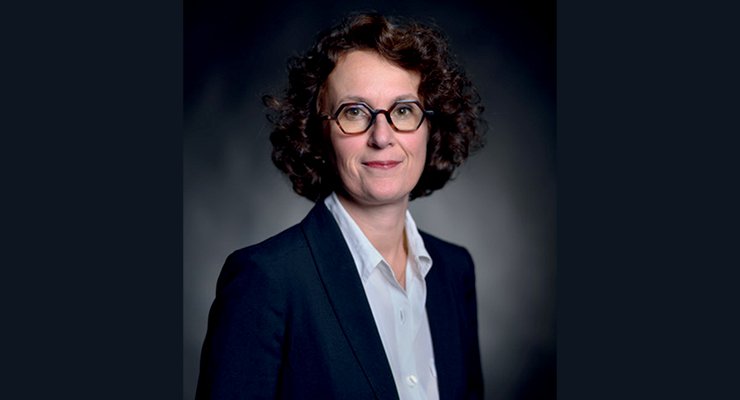An academic chair in enhanced Social Awareness for Innovative Processes
The aim of the "Social Awareness and Innovation" Chair project is to develop and implement a series of research actions to rethink and promote social openness in innovation processes carried out by engineers within their organisations.
Presentation
Today, we note that only 9% of children from disadvantaged social categories are matriculated in engineering schools, even though this category represents 36% of the population of young people on a national scale. Conversely, advantaged categories, which represent 24% of the total population, represent 63% of students in engineering schools. UTC-Compiegne is no exception and has a similar population (Institut des Politiques Publiques report, January 2021).
The aim here is twofold: to broaden the social inclusion of our institution, but also to have an impact on technological innovation within the Region's industries. Innovation is seen here as a factor in the economic and social development of a given region. Some economists estimate that an increase in annual growth of between 1 and 1.55% of GDP could be generated by a wider democratisation of innovation professions (Jaravel, 2023). The aim of this Chair is to understand the obstacles to this democratisation and to propose ways of encouraging it. The project aims to develop workshops to encourage people to become engineers, especially those from disadvantaged backgrounds, rural areas or women.
In the French academic landscape, UTC occupies a prime position in terms of technological innovation. The UTC's motto is “lending meaning to innovation', inviting reflection on the design and future of technologies. Unfortunately, the question of the social composition of the groups involved in these innovations is all too often a blind spot in studies of innovation in France. This Chair proposes to pay particular attention to this issue and to experiment with concrete actions.
Actions & Aims assigned to the Chair
The Chair's activities are based on three pillars: Enhanced awareness, Support and Research.
Enhanced awareness
Raising the awareness of young students to the engineering professions and to the notion of innovation is approached through concrete presentations by the engineering students during two workshops carried out at secondary college level, the first of which is a discovery workshop where the young college students are introduced to the notion of innovation, followed by a second, more in-depth workshop during which the engineering students present one of their current study projects from their training at UTC.
Finally, a third workshop, a project workshop, takes place in the UTC FabLab, a place specifically created to enable innovation within schools, and enables the secondary school students to participate directly with the student engineers present on site in innovation projects. The aim of these workshops is to popularise engineering and innovation and to illustrate the various concepts covered in the course. They also have an interdisciplinary dimension through the discovery of the concept of innovation, which combines the technological advances made by engineers with the need to match them with current societal needs.
Support
Although UTC already has a very useful support system, supporting the integration of new students with a lower academic profile will require more specific and certainly more regular monitoring than the traditional six-monthly juries currently in place.
What we are proposing here is the introduction of a support system that is better adapted to the new students. This could involve a refresher course in the fundamentals of science, along the lines of what is being done at Saclay (Institut Villebon Georges Charpak). This support, which we hope will be as personalised as possible, will be provided by students at the end of their degree who will be recruited as student employees.
Research
The aim of this Chair is to develop a series of research-action projects on the role of enhanced social awareness in innovation contexts. The aim is to highlight and describe the mechanisms that link social openness and innovation, seen in their historical, statistical and experimental dimensions. Innovation therefore lies at the interface between technical design practices and social and managerial work: this is clearly the position occupied by the contemporary engineer.
Far from the heroic tales recounting the adventures of inventors, innovation is above all the result of collective work, drawing on a wide range of resources. Thinking about the composition of innovation ‘collectives’ therefore implies thinking about the plurality of possibilities in innovation processes. The question of the social “openness” of the grandes écoles has long been studied in the case of the grandes écoles (Bourdieu, Passeron, 1964) (Pasquali, 2022) and more generally in the case of the school population (Beau, 2003). The question of social diversity within organisations is far less studied, whether within companies (Peretti, 2007), among entrepreneurs (Séverine Le Loarne-Lemaire, 2014) or among managers (Alter, 2012). While some very recent studies by economists have looked at the impact of social diversity on the innovation economy (Jaravel, 2023), none of them has looked specifically at the processes involved as a whole.
Means and finance
The operational partners are the various components of UTC, as well as all the secondary schools, lycées and colleges in which the interventions take place, in the Hauts-de-France and Seine-et-Marne Regions.
For 2023–2025, our partners and sponsors are the Conseil régional des Hauts de France, the Fondation du Crédit Agricole Brie Picardie and the Fondation UTC pour l'Innovation..
Contacts de la recherche à l'UTC



